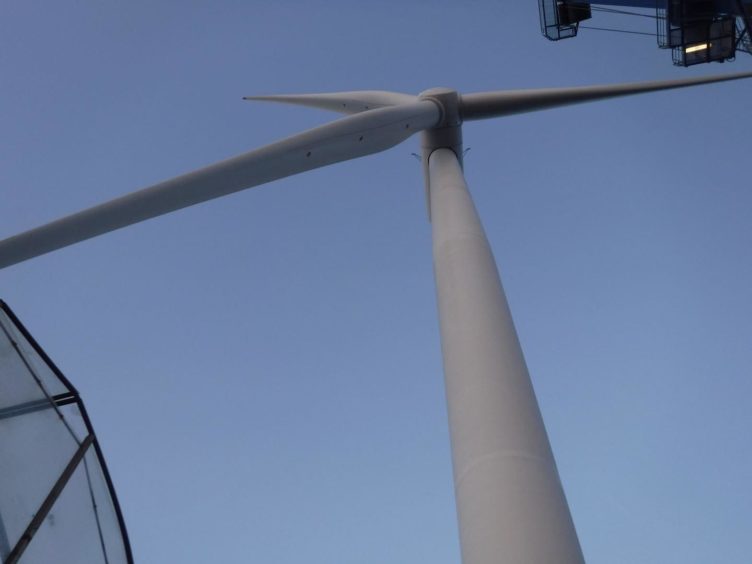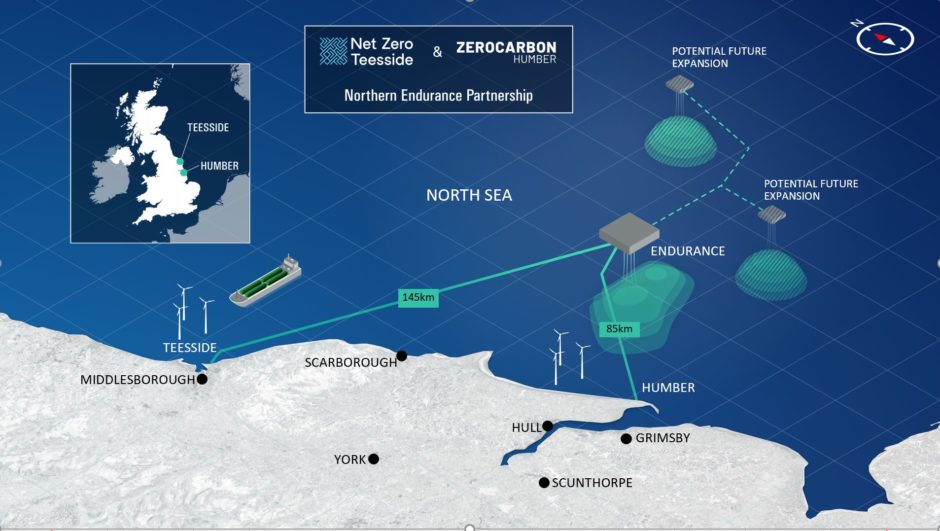
A new group has been launched in order to unlock co-location opportunities for offshore wind and carbon capture utilisation and storage (CCUS).
The Offshore Wind and CCUS Co-location Forum will identify the challenges and opportunities likely to arise by the two technologies jostling for space.
Launched and led by the Crown Estate, which manages the offshore leasing process in England and Wales, it’s also designed to offer solutions to make co-location a reality where needed.
With the increased deployment of offshore wind and CCUS, both of which will be needed to hit net zero, seabed space will rapidly fill up in the coming decades.
As such, it is forecasted that there will be numerous locations where the two will have to co-exist.
The forum brings together a range of industry partners, including the Oil & Gas Authority (OGA), the Carbon Capture and Storage Association (CCSA) and RenewableUK.
Government and the Crown Estate Scotland, which is responsible for ScotWind, will also be involved.
It will provide “strategic coordination” of co-location research and activity, as well as helping to maximise the potential of the seabed.
The forum has been set up in response to a report carried out by the Net Zero Technology Centre, formerly the Oil and Gas Technology Centre, and the ORE Catapult.
It found that it would be “potentially feasible” for offshore wind and CCUS to overlap.
However, the report recommended it should be avoided where possible in order to rule out the risks of both technologies tripping up over one another.
It also suggested forming an oversight body to co-ordinate future activity in this area.
Huub den Rooijen, managing director of marine at The Crown Estate, said: “Reaching the nation’s net zero target is one of the greatest challenges of our time. Offshore renewable technologies and carbon storage have a critical role to play in reaching this target and we are focussed on maximising the potential of the seabed to enable their sustainable growth.”
Olivia Powis, head of UK office at the Carbon Capture and Storage Association (CCSA), added: “We are delighted to be part of the new Offshore Wind and CCUS Co-location Forum, bringing together two industries that will be critical to achieving net zero. As the UK prepares to host COP26 later this year, it is vital that we work together to bring forward all solutions that will be needed to solve the climate crisis.”
BP vs Orsted
Predictions that limited seabed space could lead to friction between CCUS and offshore wind are already turning out to be well founded.
It was recently reported that BP and Orsted are currently at loggerheads over a stretch of the North Sea, about 40 miles off the Yorkshire coast.
Danish renewables giant Orsted has earmarked the area for its Hornsea Four offshore wind development.
But, BP wants to use the patch to monitor the Endurance reservoir, which could be used as a location for storing carbon.
It is feared the deployment of turbines would get in the way of site investigations.
Meanwhile, industry experts have previously raised concerns that competition between CCUS and offshore wind could result in regulatory headache.
The forum’s first priority will be to define and shape workstreams and activities centred on resolving technical, operational and regulatory overlap issues.
Its inaugural meeting is expected to take place towards the end of the month.
Scott Robertson, director of operations at the OGA, said: “The OGA is fully committed to achieving the net zero target, and is already proactively driving key deliverables on the energy transition pathway to net zero.
“The UK Continental Shelf has delivered huge value for the UK over the last 50 years, and it will become an increasingly crowded place as we progress the energy transition, which is the next chapter in the story of value delivery for the UK from the UKCS.
“This Forum will build further on the OGA-led Energy Integration Project which saw great collaboration between North Sea regulators, and the OGA is delighted to work further with The Crown Estate to ensure the right conditions are created to secure Net Zero delivery in the UK by 2050.
“Over the past 50 years the UK Continental Shelf has delivered huge benefits, and it will continue to do so as the energy transition brings new challenges and opportunities.”
Colin Palmer, director of marine at Crown Estate Scotland says: “Carbon Capture and Storage presents a great opportunity for Scotland and has the potential to combine successfully alongside offshore wind development where we are already taking major steps forward.
“This forum and associated research will offer a potential pathway towards helping ensure the two industries can work alongside each other to help us take strides towards a net zero energy future.”
Recommended for you


 © Atkinson, David James (CHAPPLE)
© Atkinson, David James (CHAPPLE)